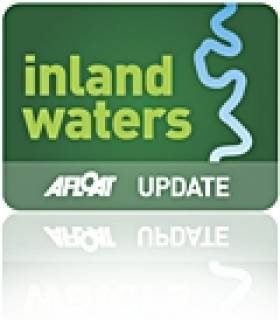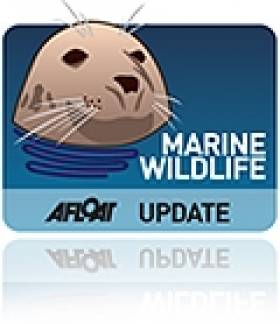Displaying items by tag: River Mourne
Inland Fisheries Ireland (IFI) says it is investigating a recent fish kill incident recorded on the Ballinagh River in Co Cavan.
Environmental and fisheries officers from the North-Western River Basin District were alerted to the incident by a member of the public on the evening of Tuesday 19 July.
Water samples were taken at the location and removed for scientific analysis.
The State agency responsible for the protection and conservation of freshwater fish and habitats estimates that in excess of 150 fish were killed in the incident, including brown trout, stickleback and minnow.
IFI adds that as investigations are ongoing, it is not in a position to comment on the cause of the fish kill at this stage, pending further analysis of samples taken.
Dr Milton Matthews, director of the North-Western River Basin District with IFI acknowledged the ongoing support of the public in reporting suspected cases of water pollution and fish kills.
“We are grateful to the member of the public who reported this incident to us so promptly, which enabled our team to take immediate action and start our investigation without delay,” he said.
“Early notice is very often critical in determining the underlying cause of fish kill events, such as this one on the Ballinagh River.”
Members of the public are encouraged to call IFI’s new confidential 24-hour hotline number on 0818 34 74 24 to report any sightings of fish kills or suspected water pollution.
Meanwhile in Northern Ireland, the Loughs Agency has confirmed a fish kill on the River Mourne in Strabane, Co Tyrone where a number of dead adult salmon were discovered in the river’s lower stretch.
“Fishery officers are currently attempting to recover a number of dead fish to allow investigation,” the agency says.
“The cause at this moment is unknown. Officers at this time do not wish to speculate, but high-water temperatures and ambient air temperatures can result in conditions in our rivers that may be unfavourable to fish.
“Anyone recovering a dead fish should contact the Loughs Agency 24-hour response number on +44 287 134 2100.”
New Search for Lifford Man Feared Drowned After Fleeing Police
A major search operation will today get under way in the Strabane area to find missing man David Calhoun, the Belfast Telegraph reports.
The 22-year-old is feared drowned after fleeing from police in the direction of the River Mourne in the early hours of Sunday 22 May. He has not been seen since.
Rescue workers and volunteers will today begin searching stretched of the Mourne and Lough Foyle for any trace of Colhoun, from nearby Lifford in Co Donegal.
Joining in the search are relatives of other missing people, such as the sisters of Limerick man Shane Moran, who disappeared near the River Shannon in January 2009.
The Belfast Telegraph has more on the story HERE.
Baby Seal Found at NI Plant Hire Yard
A lost baby seal surprised workers at a plant hire yard in Strabane, Co Tyrone earlier this month, BBC News reports.
Staff at WT Hire were put in touch with a seal sanctuary in Newtownards when the pup was discovered on 6 January.
""I couldn't understand what it was," said staff member Nigel Gilchrist. "I certainly didn't expect to see a seal."
The "bright-eyed" and "healthy" looking seal pup is presumed to have wandered from a nearby stream that runs to the River Mourne.
BBC News has more in the story - including video - HERE.






























































